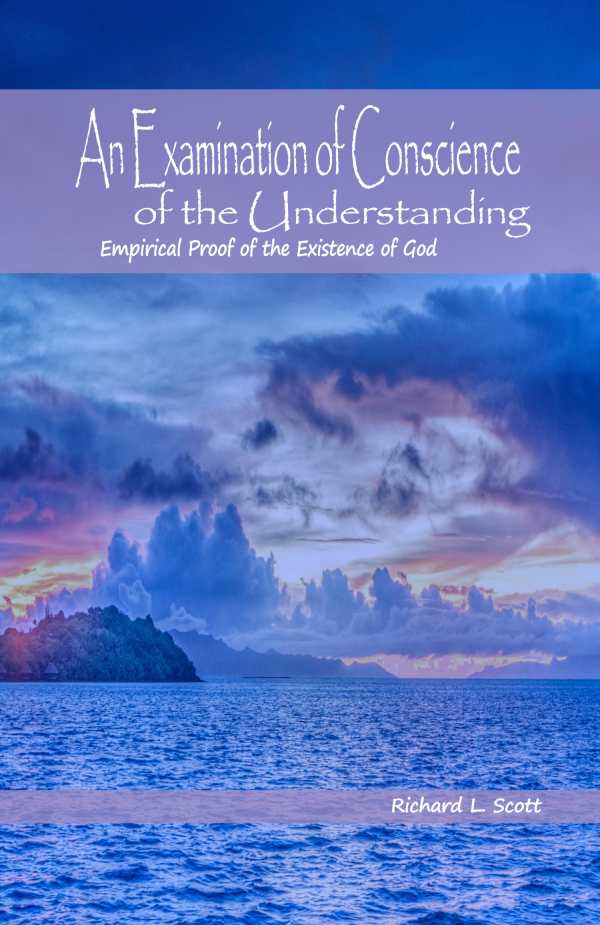An Examination of Conscience of the Understanding
Empirical Proof of the Existence of God
Examination’s considerations of difficult philosophical texts are rich and detailed, offering needed context for exploring looming religious questions.
Richard L. Scott’s An Examination of the Conscience of the Understanding is a ponderous lay philosophical text that aims to logically prove the existence of God.
Throughout the work, Scott argues that the world needs a new understanding of God that involves a historical synthesis of Christian ideas and philosophical thought. To develop it, the book considers a wide range of philosophical texts and posits logical arguments working from them, all to prove that the current culture’s understanding of God is flawed and fails to accurately speak to a Christian worldview.
In part, the book focuses on an individual’s consciousness, specifically on the two forms of that consciousness—immanent and objective—which together work toward a new understanding of God. The conscience exists, it says, because of the “Birth Paradox”—that notion that personal consciousness is necessary for a person’s own experience. Such explorations are representative of the esoteric and complicated nature of the text.
Examination’s considerations of difficult philosophical texts are rich and detailed, offering needed context for exploring looming questions. They are paired with a conservative Christian mindset to offer insights into what it means to be human. Rather than displaying distrust for non-Christian thinkers, the book makes use of philosophers ranging from René Descartes to Immanuel Kant, including secular thinkers.
For example, it uses Montaigne to set the stage, then considers Martin Luther’s theology of individual conscience and moves to Søren Kierkegaard’s questions of faith. The book rightly notes that, over time, there has been an erosion in philosophy’s focus on religious faith and a move toward a more objective and scientific exploration of notions like the soul. Examination effectively ties religious and philosophical themes together.
The book is unfailingly and elaborately logical and intensely descriptive, exploring its notions didactically, but absent real-world examples, its ideas are sometimes hard to absorb.
The book is organized in chapters that seek to probe its ideas with an ever increasing level of detail and logic, progressively highlighting the scope of its work. Still, its conclusion is clear from the outset—it works knowingly to support a religious Christian worldview.
The book sets out to prove that God exists—in the Christian sense—without any real sense that its conclusions are in doubt. God is indeed presented as knowable by the end, but this is less because of logic than it is because of faith.
Writing is unabashedly heavy. The book calls itself a “hard read for serious thinkers” and “impossible” for the novice—a fair assessment of the text, which makes frequent use of complex theological and philosophical ideas, challenging quotations, and analogies. Long and obscure words pepper the work, making it all the more challenging to understand.
Examination of Conscience is a complex work of Christian philosophy that reaches for higher truth.
Reviewed by
Jeremiah Rood
Disclosure: This article is not an endorsement, but a review. The publisher of this book provided free copies of the book and paid a small fee to have their book reviewed by a professional reviewer. Foreword Reviews and Clarion Reviews make no guarantee that the publisher will receive a positive review. Foreword Magazine, Inc. is disclosing this in accordance with the Federal Trade Commission’s 16 CFR, Part 255.

